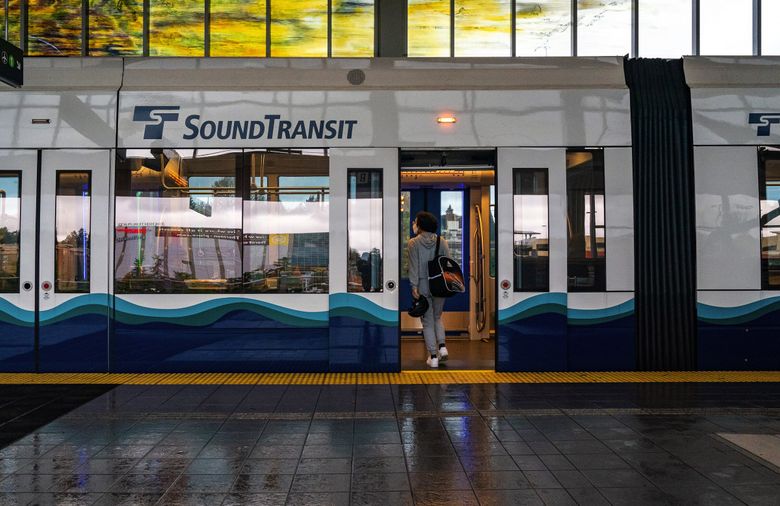
From 2019 to 2020, Sound Transit’s fare revenue dropped from $96 million to just $30 million as ridership dropped in sync with restrictions created by the COVID-19 pandemic.
At the same time, people paying their fares on the honor system also dropped. By some measures, 40% to 70% of riders were not paying fares.
Since emerging from the pandemic, the regional transportation agency began to slowly nudge fare dodgers to do the right thing by using ambassadors, whose job is to offer information to passengers while also checking to make sure all aboard have paid their fare.
Now Sound Transit plans to turn up the heat a bit more in fare enforcement. Beginning Nov. 15, ambassadors will begin a multistep enforcement plan that starts with education and warnings that can lead to fines.
Such enforcement is needed to help pay for a regional service that, considering the price of operating a vehicle, or taking a Rideshare from say, the Seattle-Tacoma International Airport to downtown Seattle, offers great bang for the $3.50 it costs to ride the Link or Sounder.
Granted, some can’t afford the full fare or any fare. There are plans available for such passengers. Low-income passengers can ride for $1 and, for those who can’t afford $1, there’s a pilot program in place that allows them to ride for free.
Under the new enforcement rules, the first few fare violations will result in warnings issued by fare ambassadors before violators will be issued a citation that involves a fine.
Sound Transit officials said the stepped up enforcement isn’t being done to make money for the agency, but rather to “normalize” revenue. Currently 55% of passengers pay their fares, which includes those who don’t have to pay, such as youths and those enrolled in a free-fare program.
The change comes after incidents of documented racial bias and intimidation by security officers patrolling the Link and Sounder trains prompted Sound Transit to get rid of officers in 2021 and hire fare ambassadors. They are not to single out individuals in their enforcement but to ask each passenger in a car for proof of payment.
To sustain a regional system it takes billions of dollars — federal, local and from passengers. All who share the advantages of the system should pay, and compassionate, respectful enforcement is only fair.
"sound" - Google News
November 09, 2023 at 04:34AM
https://ift.tt/gRhxfJn
Sound Transit needs fare revenue, but keep enforcement equitable | Editorial - The Seattle Times
"sound" - Google News
https://ift.tt/FpRkunj
Shoes Man Tutorial
Pos News Update
Meme Update
Korean Entertainment News
Japan News Update

The opinions expressed in reader comments are those of the author only and do not reflect the opinions of The Seattle Times.